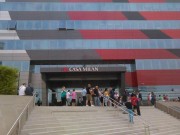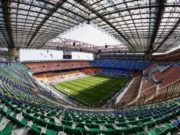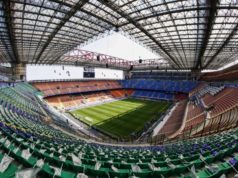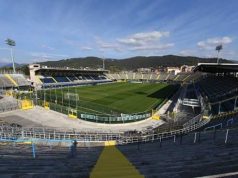Since the Juventus Stadium opened in 2011/12, the Bianconeri have regularly filled their ground almost to capacity. Over the last five and a half seasons, during which they have dominated Serie A, they have seen an average attendance of 38,602 in their 41,507-seater stadium. Questions have been raised ever since it first opened (even before) about whether it would be big enough for Juventus’ needs. With a record attendance of 41,470 set earlier this season against Roma, Gino Zavanella – one of the chief architects – told calciomercato.com that it would be difficult but not impossible to increase the capacity in the future if required.

“Anything is possible with the technology we have today. It wouldn’t be very easy, but it’s doable. It depends what sort of increase people want, it’s one thing to increase it by 20,000 seats, it’s another to increase it by 2,000. If it’s the former, we would obviously have to consider the addition of a third tier. I imagine though that if we do have to make this decision in the future then we should expand it by at least 10,000 seats, so that we can achieve a capacity of at least 52,000.”
Zavanella underlined though that the club and the architects hired to design the stadium made a careful consideration of the Juventus Stadium’s capacity, and he believes that the Bianconeri’s average attendances over recent seasons are proof that they made the right decision.
“Before the Stadium was built, less than 20,000 people came to watch Juve’s games every Sunday. Now we’re practically sold out every week, with an average attendance of between 38,000-39,000 fans, so in my opinion we judged the capacity perfectly. I remember, at the time [we were planning the new stadium], the club was always saying that it would be better for there to be 2,000 fans outside the stadium unable to get tickets than to have 10,000 empty seats.”

Despite the limitations to the stadium’s capacity, Zavanella believes Juventus can be happy with the fact that they – unlike the vast majority of Italian clubs – own their own stadium. The architect believes that the continuing public ownership of Serie A grounds has caused Italy’s clubs to have some of the most antiquated stadiums anywhere in the world.
“I think the situation is plain for everyone to see, Italian stadiums are some of the most obsolete in the world, not just in Europe. Even Africa’s stadiums are more modern than ours. Except for the Juventus Stadium, Udinese’s ground, and one or two others, every stadium is in a dilapidated condition. The main problem is that stadiums cannot be publicly owned. It’s the same as if I owned a shoe factory but I didn’t own the building I worked in.”







































